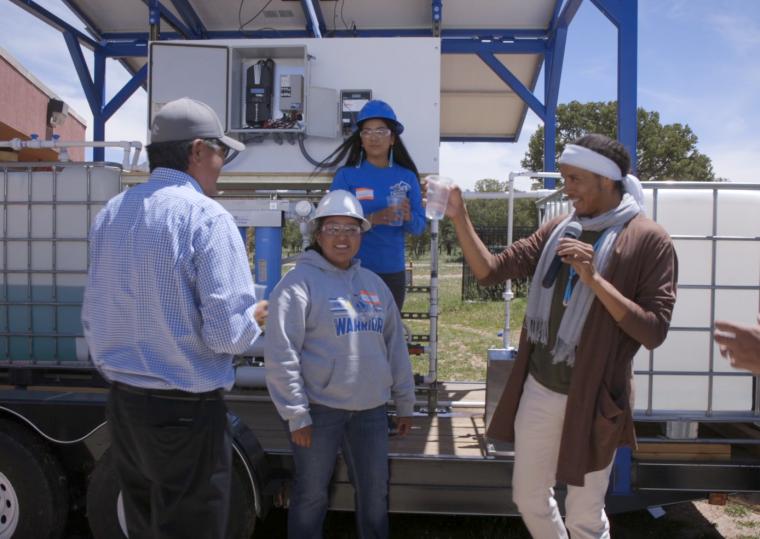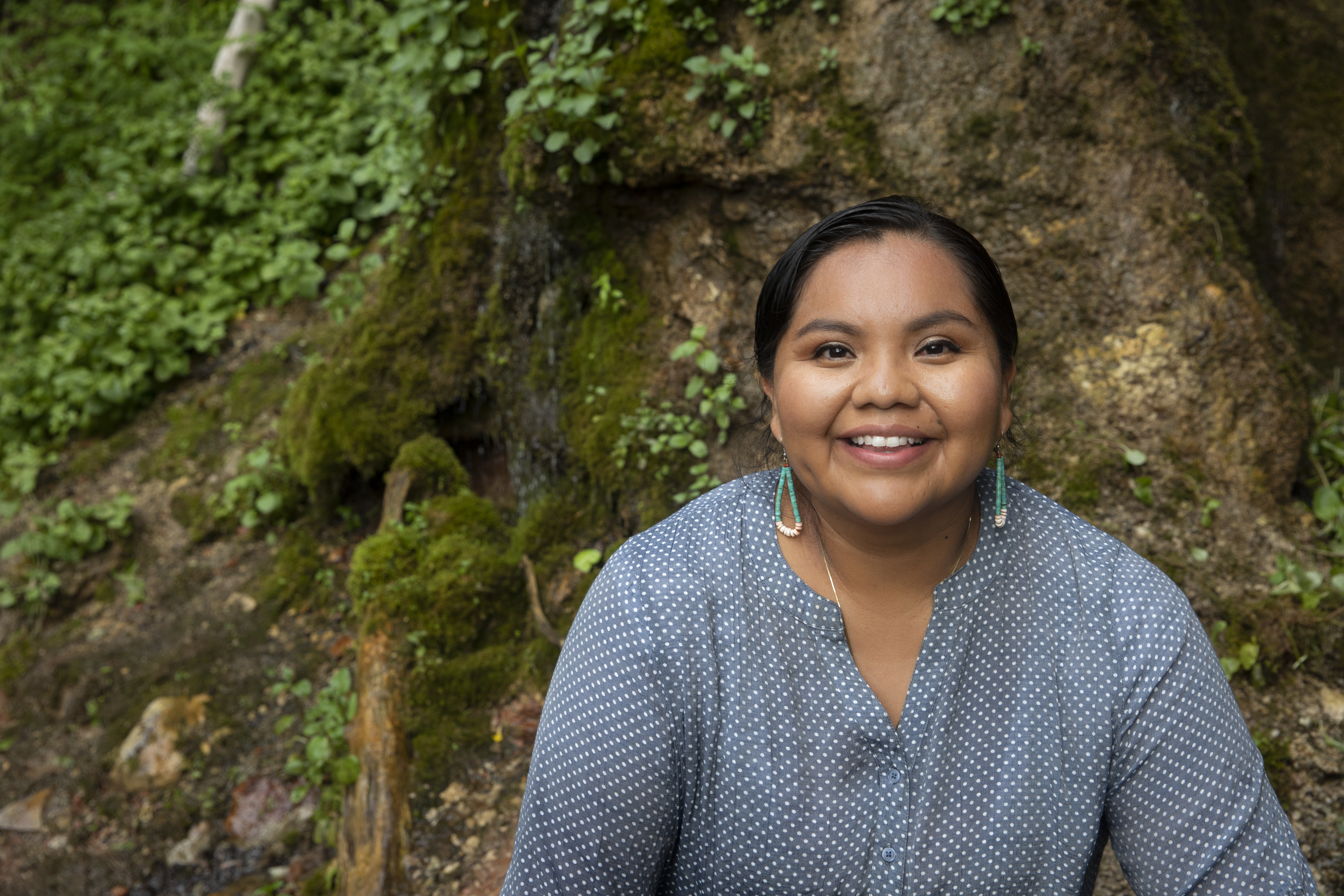Field Snapshot: Tackling 21st Century Sustainability Challenges on the Navajo Nation
Nikki Tulley grew up on the Navajo Nation. Now, as a doctoral student in environmental science at the University of Arizona, she is enrolled in the Indige-FEWSS program.
Twelve University of Arizona graduate students have teamed up with undergraduates on the Navajo Nation to design a solar-powered water filtration system that can provide 50 gallons of safe, clean water to 30 Navajo families per day.
The students are part of the first cohort of trainees to participate in a five-year, $3 million National Science Foundation grant that enables an unprecedented collaboration among the UArizona and Diné College. The goal of the program is to teach the next generation of STEM professionals how to confront food, energy and water challenges among Indigenous communities while letting traditional values guide their work.
The program, Indigenous Food, Energy and Water Security and Sovereignty, or Indige-FEWSS, combines research internships, teaching and cultural immersion.
“We want to enable these trainees to tackle critical, real-world food, energy and water problems with an understanding of culture and sovereignty of Indigenous people,” said Karletta Chief, a UArizona associate professor of environmental science who is leading the project.
The Navajo Nation is the largest reservation in the U.S. Up to 35% of its residents don’t have running water in the home due to rugged terrain and low population density. While Navajo Nation EPA policy prohibits human consumption of water from unregulated sources, Navajos without access to piped water routinely drive long distances to haul water for drinking, cooking and bathing. Often this water comes from unregulated sources, like livestock wells and springs that can exceed drinking water standards for chemicals like arsenic and uranium, an impact of earlier mining activities.
The use of unregulated water sources is the greatest public health risk associated with drinking water for the Navajo Nation.
"Trainees in the Indige-FEWSS program are not doing research to be put on the shelf, but we’re doing research to have real impact and solve real problems that our community has."
Influenced by traditional Navajo culture and ecological knowledge, the Indige-FEWSS students tackled the problem by designing a $25,000 system that reflects lifestyles and culture on the reservation. It sits on a flatbed trailer that can be towed to a water source, and the materials it comprises are largely available at a hardware store.
System demo.jpg

The solar-powered water filtration system can purify up to 1,500 gallons of water per day, removing nearly 100% of dissolved chemicals such as arsenic and uranium—well below the concentrations to meet drinking water standards—without the need to be connected to centralized water or power. Using the system, Navajo Nation residents can continue to haul water from wells while also ensuring its safety and cleanliness.
“Trainees in the Indige-FEWSS program are not doing research to be put on the shelf, but we’re doing research to have real impact and solve real problems that our community has,” said Chief, who grew up on the Navajo Nation.
Each UAriona student in the program will receive a graduate degree in a STEM field along with an Indige-FEWSS minor.
“Through Indige-FEWSS, I’m able to fulfill a promise I made to my family, saying that I’ll never forget where I come from,” said Nikki Tulley, a doctoral student in environmental science. “My place in the universe will always be bringing resources and services to the Navajo Nation.”
This story was part of the 2019 WildCat Country insert of the Arizona Republic.


